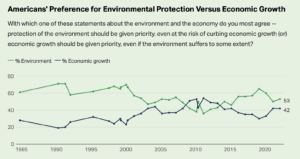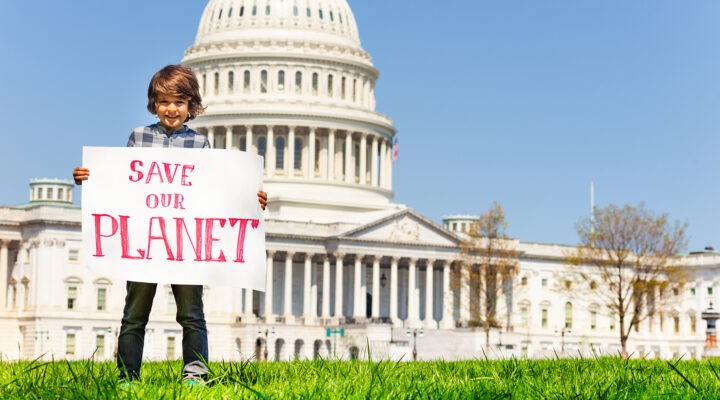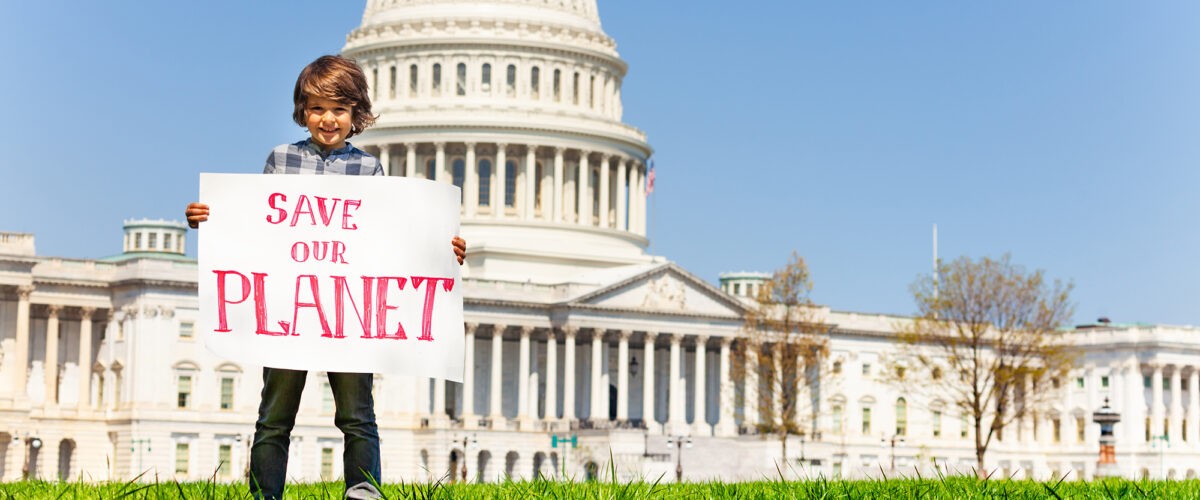While climate change initiatives often carry the sound bites of partisan politics, a bipartisan majority of Americans favor key proposals to curb greenhouse gas emissions that contribute to climate change.
However, as with other hot social and scientific issues — such as immigration and race, for example — the majority will of the people does not translate into bipartisan solutions.
Just in time for Earth Day on April 22, Gallup has released new polling that shows widespread national support for specific green initiatives, including 89% support for providing tax credits to Americans who install clean energy systems in their homes.
Majorities also approve of five additional green measures:
- Providing tax incentives to businesses to promote their use of wind, solar and nuclear power (75%).
- Setting higher fuel efficiency standards for cars, trucks and buses (71%).
- Establishing strict limits on the release of methane in the production of natural gas (62%).
- Providing tax credits to individuals who purchase electric vehicles (61%).
- Spending federal money to increase the number of electric vehicle charging stations in the U.S. (59%).
Gallup researchers explained the context for this data: “President Joe Biden made climate change policies a major part of the roughly $2 trillion social spending bill he proposed last year. The bill stalled in the Senate due to concerns about the effect on the budget deficit and economy more broadly, though it is possible some parts of it could still be passed as separate legislation. A separate infrastructure bill that passed last year with bipartisan support did include some provisions designed to increase the use of clean energy and electric vehicles.”

The Gallup poll also asked respondents to weigh the possible economic risk of passing legislation to limit greenhouse gas emissions against the risk to the environment of not passing such legislation. Here, a narrower majority of 53% said they are more concerned about the risk to the environment of not passing such proposals, while 43% are more concerned about the potential harm to the economy and deficit if they are passed.
A third question asked about prioritizing environmental protection versus economic growth. The results were similar to the second question, with 53% saying protecting the environment is the greater priority and 42% saying economic growth is the greater priority.
Historically, based on similar surveys since 1984, Gallup has noted a direct correlation between the state of the economy and how Americans answer these questions about climate initiatives. “Americans have almost always prioritized the environment, but in weaker economic times, they have been less likely to do so,” the report explained.
“Currently, with the U.S. facing high inflation, record gas prices and a relatively uneven recovery from the economic effects of the coronavirus pandemic, the margin in favor of environmental protection is relatively small. Before the pandemic, in 2019 and early 2020, Americans prioritized environmental protection by roughly 2 to 1.”
“Before the pandemic, in 2019 and early 2020, Americans prioritized environmental protection by roughly 2 to 1.”
While there are significant bipartisan majorities in favor of some of these green initiatives, Gallup found Republicans and Democrats “differ greatly as to whether they give more precedence to the environment or the economy.”
A supermajority (68%) of Republicans and Republican-leaning independents prioritize the risk of harm to the economy and expansion of the deficit from passing climate change laws. And three-fourths (75%) of Democrats and Democratic leaners believe the risk to the environment outweighs the risk to the economy and budget deficit.
But again, despite the sound bites of politicians, Republican majorities do favor some of the specific initiatives mentioned in the poll. Majorities of Republicans favor tax credits for people who install clean energy systems (78%), tax incentives for businesses that use alternative energy (62%), and higher fuel efficiency standards for vehicles (56%).
What Republicans are least likely to support is providing tax credits to individuals who purchase electric vehicles (36%) and spending federal money to increase the number of electric vehicle charging stations in the U.S. (40%).
However, separate market and psychographic research done by other firms adds an interesting wrinkle to this point: Those shopping for a Tesla — the premier and trendy version of an electric vehicle — are almost as likely to be Republicans as Democrats. And the gap is narrowing.
Market research by Hedges & Company in 2018 found the average Tesla owner is a 54-year-old white male who earns more than $140,000 a year and has no children.
Related articles:
On Earth Day, let us remember the earth is filled with God’s glory | Opinion by Phawnda Moore
Earth Day 2022: A time for the watchman on the wall | Opinion by Katherine Smith


